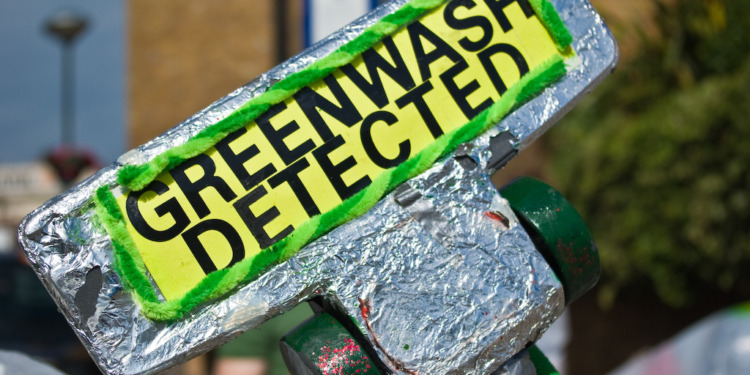In March 2022, the European Parliament released a legislative proposal to strengthen consumer rights, with the main focus on updating EU consumer protection rules, in order to “empower customers to act in favour of the green transition.”
“This proposal aims to strengthen the fight against greenwashing by banning practices that mislead consumers on the actual sustainability of products,” EU Justice Commissioner Didier Reynders said.
“By doing so, consumers can choose products that are generally better for the environment. This will encourage competition towards more environmentally sustainable products,” he added.
The proposal involved amendments to the Unfair Commercial Practices Directive (UCPD), because of incidents in the past of companies providing misleading information about the environmental or social impact of their products. For example, the proposal sought to ban claims about sustainability that did not have “clear, objective and verifiable commitments and targets.”
In addition, the MEPs proposed new additions to the “black list” of prohibited unfair commercial practices, such as making generic environmental claims which traders cannot properly evidence, or making a claim about the climate impact of an entire product when the claim actually only concerns a small aspect of it.
The proposal also includes a ban on vague and generic labels, such as “natural,” “eco,” or “environmentally friendly,” if they cannot be backed by evidence. Instead, the idea is to only allow the use of sustainability labels “based on official certification schemes or established by public authorities.”
The proposal was approved on May 11, 2023, by an overwhelming majority of the European Parliament, with 544 votes in favour, 18 votes against, and 17 abstentions. Negotiations are now beginning to put the plan into action.
One change that is being actively discussed by lawmakers in the European Parliament at the moment is a potential ban on businesses that claim carbon neutrality based on carbon offsetting schemes (such as planting trees to compensate for CO2 emissions), because these schemes are not always efficient, and take a long time to fully counteract their carbon impact.
Related Articles: Six Ideas to Make Aviation More Sustainable | Airport Activism: Is a New Style of Protest Taking Off?
Earlier this year, the Guardian released the results of their nine-month investigation into rainforest carbon offsets offered by Verra, the world’s leading carbon certifier used by Disney, Shell and Gucci, among many others.
The investigation revealed the shocking news that more than 90% of rainforest offset schemes do not result in genuine carbon reductions, and are most likely “worthless.”
Airline companies are an example of those who had previously relied on these carbon offset schemes to relieve their customers’ climate anxiety, and greenwash them into indulging in unsustainable habits without guilt.
This is now an option on Ryanair towards the end of your booking, they give the option of paying money to fully offset your CO2 emission for the flight, I wonder do many fall for this scam ? pic.twitter.com/FYdjq2f19p
— Elaine Mullally ☘️ (@mullally_elaine) November 11, 2022
For example, Ryanair had previously made many generic claims to appear more sustainable than they actually were. There used to be an option to pay extra to “fly greener,” but this has now been changed to paying extra to “compensate your CO2 emissions;” the green leaf symbols have also been removed from this feature, due to the fact CO2 compensation does not make the act of taking a flight more sustainable in itself, and the previous implications of this were entirely misleading.
These changes were made after an investigation began into the company by the Netherlands Authority for Consumers and Markets (ACM), which claimed that Ryanair should not have been attempting to hide the fact that flying remains “highly polluting”.
As a result of the new proposals, the European Parliament aims to encourage companies to progress away from carbon offset schemes and to instead work to provide sustainable alternatives to their products which damage the environment. One example of how this can be enacted is the airline company EasyJet, which has now abandoned offset schemes completely to begin research into sustainable aviation fuel or hydrogen-powered engines.
However, despite the fact that these new proposals are a positive step in the direction of genuine work towards sustainability, one concern is that companies will no longer invest in sustainable activities whilst buzzwords such as “natural” and “eco” are banned, since they cannot boast about them or profit off of them.
Yet on the other hand, it can be argued that these vague and meaningless buzzwords were only ever restricting these companies, because now, due to the new European Parliament proposals, companies can no longer live in denial, and must now take the necessary, genuine steps to lower their carbon footprints.
“The jungle of false environmental claims will end as only certified and substantiated ecological claims will be permitted,” rapporteur Biljana Borzan (S&D, HR) said after the May 11 EU Parliament vote on the proposal.
We can only hope that the progress made in negotiations around these proposals will be a positive step towards a society that favours genuine sustainable progress over greenwashing, misinformation, and denial.
Editor’s Note: The opinions expressed here by the authors are their own, not those of Impakter.com — In the Featured Photo: A sign reading “Greenwash Detected.”










